Planning worship?
Check out our sister site, ZeteoSearch.org,
for 20+ additional resources related to your search.
- |
User Links
Person Results
‹ Return to hymnal
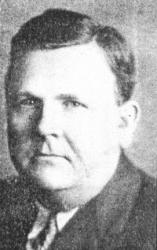

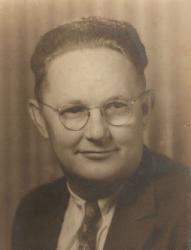
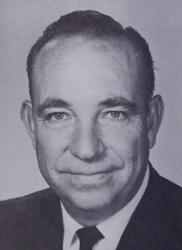
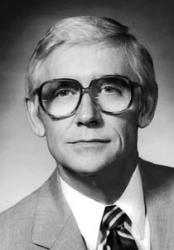
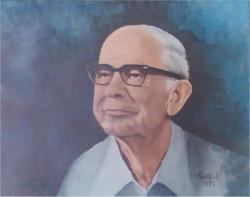

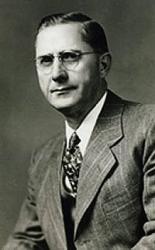

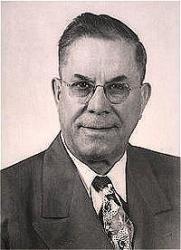





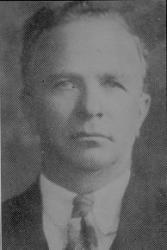
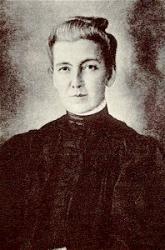
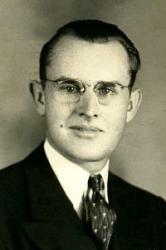
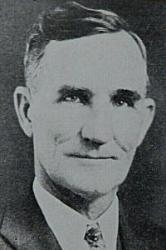
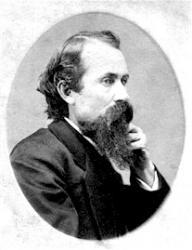
Export as CSV
Joe E. Parks
Hymnal Number: 146 Author of "Wait till you see me in my new home" in Silver Trumpets
Joe E. Parks
Tennessee Music and Printing Co.
Person Name: Tennessee Music & Printing Co. Publisher of "" in Silver Trumpets
Tennessee Music and Printing Co.
E. M. Bartlett

1885 - 1941 Person Name: Eugene M. Bartlett Hymnal Number: 61 Author of "Who is that knocking, calling, seeking" in Silver Trumpets E. M. Bartlett was born December 24, 1883 in Waynesville, Missouri. His family later moved to Sebastian County, Arkansas. Bartlett received training as a music teacher and was a leader in developing Southern gospel music. He was employed by Central Music Company, a publisher of shape note singing books based in Hartford, which was owned by David Moore and Will H. Ramsey. Bartlett persuaded Moore and John A. McClung to partner with him to form Hartford Music Company. In 1921, Bartlett established the Hartford Music Institute, a shape note school. He provided opportunities for many songwriters and musicians in gospel music, including Albert E. Brumley. In 1939 he suffered a stroke and afterwards wrote "Victory in Jesus."
Dianne Shapiro, from "The Encyclopedia of Arkansas History & Culture" http://www.encyclopediaofarkansas.net/encyclopedia/entry-detail.aspx?entryID=2660 and "Gospel Music Hall of Fame" website: http://www.gmahalloffame.org/speaker-lineup/e-m-bartlett-sr/ (accessed 1-24-2018)
E. M. Bartlett
J. Edwin Orr
1912 - 1987 Hymnal Number: 133 Author of "Cleanse Me" in Silver Trumpets Rv James Edwin Orr MA ThD EdD PhD United Kingdom/USA. Born at Belfast, Northern Ireland, son of a jeweler with both British and American citizenship (so his children did as well), he studied at the College of Technology, Belfast, Ireland. After spending some years as a baker, he began evangelizing in Britian and in Europe. In 1937 he married Ivy Carol Carlson, and they had a daughter: Eileen. After their marriage, the Orrs evangelized in Australia (1939), China, Canada, South America, and the U.S. In 1939 he enrolled at Northwest University, and in 1940 was ordained into the Baptist Christian ministry at Newark, NJ. He received a MA from Northwest University in 1941 and a ThD from Northern Baptist Seminary in 1943. During WWII he served as a chaplain in the U.S. Air Force in the Pacific region. During these years he also wrote several accounts of his preaching tours. After the war he continued his studies and took his PhD at Oxford University in 1948, with his thesis on the second evangelical awakening in Britain. In 1949 he and his wife made the U.S. their permanent base and continued to travel the world promoting church revival and renewal. They evangelized in 150 countries on several continents. In 1966 he became a professor at the School of World Missions, Fuller Theological Seminary, Pasadena, CA. In 1971 he received his EdD degree from UCLA. He remained at Fuller until 1981., and as professor emeritus thereafter. He also received honorary degrees from an Indian seminary and the university of South Africa. Billy Graham wrote: “Dr J Edwn Orr, in my opinion, is one of the greatest authorities on the history of religious revivals in the Protestant world.” From 1951 on he was influential in Campus Crusade for Christ, and was one of its five original board members. He authored 40+ works, mostly on revival work. He also wrote a few hymn lyrics. He was a Fellow of the Royal Geographical Society, the American Geographical Society, the Royal Historical Society, and the Royal Society of Literature. He died at Ridgecrest, NC. Burial: Camarillo, CA.
John Perry
J. Edwin Orr
J. R. Baxter

1887 - 1960 Hymnal Number: 45 Author of "Jesus came from his home above" in Silver Trumpets Jesse Randall (Pap) Baxter, Jr. (1887-1960)
Born: December 8, 1887, Lebanon, Alabama.
Died: January 21, 1960.
Baxter grew up in DeKalb County, Alabama. In 1926, he bought part of Virgil Stamps’ Gospel music firm, which became the Stamps-Baxter Music and Printing Company, one of the most successful Gospel music publishers of the early 20th Century. Baxter ran the company’s Chattanooga, Tennessee, office until Stamps’ death in 1940, then moved to Dallas, Texas, to run the main office. After Baxter’s death, his wife, Clarice, ran the business until she died; it was then sold to Zondervan. Baxter was inducted into the Southern Gospel Music Association Hall of Fame in 1997.
Lyrics--
After the Sunrise
Farther Along
God Shall Wipe Away All Tears (© 1940)
He Bore It All
I Have Peace in My Soul
I Hold His Hand (© 1929)
I Love My Savior, Too
I Want to Help Some Weary Pilgrim
I’m Living in Canaan Now
Living Grace
Praise the Lamb of God
Something Happens
Travel the Sunlit Way
Try Jesus
When He Blessed My Soul
When We Meet to Part No More
© Cyber Hymnal™ (www.hymntime.com/tch)
J. R. Baxter
J. B. Coats

1901 - 1961 Hymnal Number: 158 Author of "Mighty close to heaven" in Silver Trumpets J.B. Coats was born on April 6, 1901, in Summerland, Mississippi. He attended the schools of his area and was both a student and lover of music all his life...His formal education was continued with study at Mississippi Southern College and Louisiana State University. He also studied music with Julius Rishing, J.E. and Alvis O. Thomas and T.B. Mosley. When just a lad about fourteen, he began teaching music classes and conducting evangelistic singing. Mr. Coats was a teacher in public schools most of his life...He was the composer of many loved gospel songs with "Where Could I Go" haveing been printed and sung most widely. Others of his outstanding songs are "A Wonderful Place", "My Soul Shall Live On", "I'm Winging My Way Back Home", and "Tomorrow May Mean Goodbye". Many of his songs have been recorded by leading quartets and singers...Mr. Coats was associated with Stamps-Baxter Music Company and a lifetime staff writer for them...He joined the Baptist Church and served more than thirty years as a Deacon before answering the call to the ministry. He died on December 15, 1961.
--doyouknowhowgodlovesyou.blogspot.com
J. B. Coats
V. B. Ellis

1917 - 1988 Person Name: Vep B. Ellis Hymnal Number: 119 Author of "Faith is the victory" in Silver Trumpets Vesphew (Vep) Benton Ellis
V. B. Ellis
Mosie Lister

1921 - 2015 Hymnal Number: 136 Author of "I'll leave it all behind" in Silver Trumpets
Mosie Lister
Albert E. Brumley

1905 - 1977 Hymnal Number: 26 Author of "It's really surprising what the Lord can do" in Silver Trumpets Born: October 29, 1905, near Spiro, Oklahoma. Died: November 15, 1977, Springfield, Missouri. Buried: Fox Cemetery, Powell, Missouri.
Brumley attended the Hartford Musical Institute in Hartford, Arkansas, and sang with the Hartford Quartet. He went on to teach at singing schools in the Ozarks, and lived most of his life in Powell, Missouri. He worked for 34 years a staff writer for the Hartford and Stamps/Baxter publishing companies, then founded the Albert E. Brumley & Sons Music Company and Country Gentlemen Music, and bought the Hartford Music Company. He wrote over 800 Gospel and other songs during his life; the Country Song Writers Hall of Fame inducted him in 1970.
© The Cyber Hymnal™. Used by permission. (www.hymntime.com)
Albert E. Brumley
John Cennick

1718 - 1755 Hymnal Number: 69 Author of "I want to go there too" in Silver Trumpets John Cennick was born at Reading, Berkshire, in the year 1717. He became acquainted with Wesley and Whitefield, and preached in the Methodist connection. On the separation of Wesley and Whitefield he joined the latter. In 1745, he attached himself to the Moravians, and made a tour in Germany to fully acquaint himself with the Moravian doctrines. He afterwards ministered in Dublin, and in the north of Ireland. He died in London, in 1755, and was buried in the Moravian Cemetery, Chelsea. He was the author of many hymns, some of which are to be found in every collection.
--Annotations of the Hymnal, Charles Hutchins, M.A. 1872.
=======================
Cennick, John, a prolific and successful hymnwriter, was descended from a family of Quakers, but brought up in the Church of England. He assisted J. Wesley and then G. Whitefield in their labours for a time, and then passed over to, and died as a minister of, the Moravian Church. Born at Reading, Dec. 12, 1718, he was for some time a land surveyor at Reading, but becoming acquainted with the Wesleys in 1739, he was appointed by J. Wesley as a teacher of a school for colliers' children at Kingswood in the following year. This was followed by his becoming a lay preacher, but in 1740 he parted from the Wesleys on doctrinal grounds. He assisted Whitefield until 1745, when he joined the Mora¬vians, and was ordained deacon, in London, in 1749. His duties led him twice to Germany and also to the North of Ireland. He died in London, July 4, 1755. In addition to a few prose works, and some sermons, he published:— (1) Sacred Hymns, for the Children of God in the Days of their Pilgrimage, Lond., J. Lewis, n.d. (2nd ed. Lond., B. Milles, 1741), Pts. ii., iii., 1742; (2) Sacred Hymns for the Use of Religious Societies, &c, Bristol, F. Farley, 1743; (3) A Collection of Sacred Hymns, &c, Dublin, S. Powell, 3rd ed., 1749; (4) Hymns to the honour of Jesus Christ, composed for such Little Children as desire to be saved. Dublin, S. Powell, 1754. Additional hymns from his manuscripts were published by his son-in-law, the Rev. J. Swertner, in the Moravian Hymn Book, 1789, of which he was the editor. There are also 16 of his hymns in his Sermons, 2 vols., 1753-4, some being old hymns rewritten, and others new.
Many of Cennick's hymns are widely known, as, "Lo, He cometh, countless trumpets;" “Brethren, let us join to bless;" "Jesus, my all, to heaven is gone;" "Children of the heavenly King;" "Ere I sleep, for every favour;" "We sing to Thee, Thou Son of God;" and the Graces: " Be present at our table, Lord;" and "We thank Thee, Lord;" &c. Some of the stanzas of his hymns are very fine, but the hymns taken as a whole are most unequal. Some excellent centos might be compiled from his various works. His religious experiences were given as a preface to his Sacred Hymns, 1741. In addition to the hymns named, and others annotated under their first lines, the following are in common use:—
1. Be with me [us] Lord, where'er I [we] go. Divine Protection. [1741.]
2. Cast thy burden on the Lord. Submission. [1743.]
3. Not unto us, but Thee alone. Praise to Jesus. [1743.]
4. Thou dear Redeemer, dying Lamb. Priesthood of Christ. [1743.]
5. We sing to Thee, Thou Son of God. Praise to Jesus. [1743.]
6. When, 0 dear Jesus, when shall I? Sunday Evening. [1743.]
--John Julian, Dictionary of Hymnology (1907)
John Cennick
Luther G. Presley

1887 - 1974 Hymnal Number: 65 Author of "I've been awaitin'" in Silver Trumpets Luther G. Presley (March 6, 1887 – December 6, 1974) was a songwriter, musician, and composer, who is best-known for writing the lyrics to the gospel song "When the Saints Go Marching In".
Luther G. Presley was born on Beckett Mountain in Faulkner County, Arkansas on March 6, 1887. He studied music beginning at the age of 14, where he excelled. He soon became choir director. He wrote his first song, "Gladly Sing," when he was 17. He furthered his study in singing and music, under renowned teachers.
Work
Luther Presley wrote the lyrics for the gospel spiritual "When the Saints Go Marching In", in 1937, while Virgil O. Stamps composed the music and melody to the famous work.
Luther Presley was inducted into the Southern Gospel Music Association Hall of Fame in 2008.
--wikipedia.org
Luther G. Presley
William C. Martin

1864 - 1914 Person Name: W. C. Martin Hymnal Number: 32 Author of "Silver linings" in Silver Trumpets Rv William Clark Martin USA 1864-1914. Born at Hightstown, NJ, he graduated from the Peddie Institute in Hightstown in 1884, and in 1891 from the Crozer Theological Seminary, Upland, PA. He became minister of the Grace Baptist Church, Camden, NJ,(1891-1894); Noank Baptist Church, Noank, CT (1894-1900); Tabernacle Baptist Church, New Albany, IN (1902-1904); First Baptist Church, Seymour, IN (1902-1904); First Baptist Church, Bluffton, IN (1904-1909); Grace Baptist Church, Somerville, MA (1909-1912); and First Baptist Church, Fort Myers, FL (1912-1914). In 1891 he married Euretta (Etta) May Wilcox, and they had at least three children (no names found). He penned many hymn lyrics. He died of heart failure at his farm in Rialto, FL.
John Perry
William C. Martin
Adger M. Pace

1882 - 1959 Hymnal Number: 14 Author of "A stranger in this land" in Silver Trumpets Born: August 13, 1882, Pelzer, South Carolina.
Died: February 12, 1959, Lawrence County Hospital, Lawrenceburg, Tennessee.
Buried: Dunn Methodist Church Cemetery, Lawrenceburg, Tennessee.
Pseudonyms: Millard A. Glenn; Charles H. Huff; Audalene Mayfield; Fay Wallington.
Born August 13, 1882 near Pelzer, South Carolina, Adger M. Pace soon gained a love and appreciation for music that characterized the remainder of his life.
He sang bass for seventeen years as a member of the Vaughan Radio Quartet, singing over WOAN--one of the South's first radio stations. He was also active in singing conventions, serving as one of the organizers and the first president of the National Singing Convention in 1937.
Pace's most significant contribution was as a teacher of gospel music. He taught harmony, counterpoint and composition in the Vaughan School of Music in Lawrenceburg, Tennessee, educating the first generation of Southern gospel Music leaders. Beginning in 1920, he served for 37 years as Music Editor for all Vaughan publications.
He was also a notable songwriter--composing more than a thousand songs in his career. Among his many popular contributions were "That Glad Reunion Day," "Jesus Is All I Need," "The Home-coming Week," "The Happy Jubilee," and "Beautiful Star of Bethlehem."
www.sgma.org/inductee_bios
Adger M. Pace
William Cowper

1731 - 1800 Hymnal Number: 91 Author of "There is a fountain filled with blood, drawn from Immanuel's vein [veins]" in Silver Trumpets William Cowper (pronounced "Cooper"; b. Berkampstead, Hertfordshire, England, 1731; d. East Dereham, Norfolk, England, 1800) is regarded as one of the best early Romantic poets. To biographers he is also known as "mad Cowper." His literary talents produced some of the finest English hymn texts, but his chronic depression accounts for the somber tone of many of those texts. Educated to become an attorney, Cowper was called to the bar in 1754 but never practiced law. In 1763 he had the opportunity to become a clerk for the House of Lords, but the dread of the required public examination triggered his tendency to depression, and he attempted suicide. His subsequent hospitalization and friendship with Morley and Mary Unwin provided emotional stability, but the periods of severe depression returned. His depression was deepened by a religious bent, which often stressed the wrath of God, and at times Cowper felt that God had predestined him to damnation.
For the last two decades of his life Cowper lived in Olney, where John Newton became his pastor. There he assisted Newton in his pastoral duties, and the two collaborated on the important hymn collection Olney Hymns (1779), to which Cowper contributed sixty-eight hymn texts.
Bert Polman
============
Cowper, William, the poet. The leading events in the life of Cowper are: born in his father's rectory, Berkhampstead, Nov. 26, 1731; educated at Westminster; called to the Bar, 1754; madness, 1763; residence at Huntingdon, 1765; removal to Olney, 1768; to Weston, 1786; to East Dereham, 1795; death there, April 25, 1800.
The simple life of Cowper, marked chiefly by its innocent recreations and tender friendships, was in reality a tragedy. His mother, whom he commemorated in the exquisite "Lines on her picture," a vivid delineation of his childhood, written in his 60th year, died when he was six years old. At his first school he was profoundly wretched, but happier at Westminster; excelling at cricket and football, and numbering Warren Hastings, Colman, and the future model of his versification. Churchill, among his contemporaries or friends. Destined for the Bar, he was articled to a solicitor, along with Thurlow. During this period he fell in love with his cousin, Theodora Cowper, sister to Lady Hesketh, and wrote love poems to her. The marriage was forbidden by her father, but she never forgot him, and in after years secretly aided his necessities. Fits of melancholy, from which he had suffered in school days, began to increase, as he entered on life, much straitened in means after his father's death. But on the whole, it is the playful, humorous side of him that is most prominent in the nine years after his call to the Bar; spent in the society of Colman, Bonnell Thornton, and Lloyd, and in writing satires for The Connoisseur and St. James's Chronicle and halfpenny ballads. Then came the awful calamity, which destroyed all hopes of distinction, and made him a sedentary invalid, dependent on his friends. He had been nominated to the Clerkship of the Journals of the House of Lords, but the dread of appearing before them to show his fitness for the appointment overthrew his reason. He attempted his life with "laudanum, knife and cord,"—-in the third attempt nearly succeeding. The dark delusion of his life now first showed itself—a belief in his reprobation by God. But for the present, under the wise and Christian treatment of Dr. Cotton (q. v.) at St. Albans, it passed away; and the eight years that followed, of which the two first were spent at Huntingdon (where he formed his lifelong friendship with Mrs. Unwin), and the remainder at Olney in active piety among the poor, and enthusiastic devotions under the guidance of John Newton (q. v.), were full of the realisation of God's favour, and the happiest, most lucid period of his life. But the tension of long religious exercises, the nervous excitement of leading at prayer meetings, and the extreme despondence (far more than the Calvinism) of Newton, could scarcely have been a healthy atmosphere for a shy, sensitive spirit, that needed most of all the joyous sunlight of Christianity. A year after his brother's death, madness returned. Under the conviction that it was the command of God, he attempted suicide; and he then settled down into a belief in stark contradiction to his Calvinistic creed, "that the Lord, after having renewed him in holiness, had doomed him to everlasting perdition" (Southey). In its darkest form his affliction lasted sixteen months, during which he chiefly resided in J. Newton's house, patiently tended by him and by his devoted nurse, Mrs. Unwin. Gradually he became interested in carpentering, gardening, glazing, and the tendance of some tame hares and other playmates. At the close of 1780, Mrs. Unwin suggested to him some serious poetical work; and the occupation proved so congenial, that his first volume was published in 1782. To a gay episode in 1783 (his fascination by the wit of Lady Austen) his greatest poem, The Task, and also John Gilpin were owing. His other principal work was his Homer, published in 1791. The dark cloud had greatly lifted from his life when Lady Hesketh's care accomplished his removal to Weston (1786): but the loss of his dear friend William Unwin lowered it again for some months. The five years' illness of Mrs. Unwin, during which his nurse of old became his tenderly-watched patient, deepened the darkness more and more. And her death (1796) brought “fixed despair," of which his last poem, The Castaway, is the terrible memorial. Perhaps no more beautiful sentence has been written of him, than the testimony of one, who saw him after death, that with the "composure and calmness" of the face there “mingled, as it were, a holy surprise."
Cowper's poetry marks the dawn of the return from the conventionality of Pope to natural expression, and the study of quiet nature. His ambition was higher than this, to be the Bard of Christianity. His great poems show no trace of his monomania, and are full of healthy piety. His fame as a poet is less than as a letter-writer: the charm of his letters is unsurpassed. Though the most considerable poet, who has written hymns, he has contributed little to the development of their structure, adopting the traditional modes of his time and Newton's severe canons. The spiritual ideas of the hymns are identical with Newton's: their highest note is peace and thankful contemplation, rather than joy: more than half of them are full of trustful or reassuring faith: ten of them are either submissive (44), self-reproachful (17, 42, 43), full of sad yearning (1, 34), questioning (9), or dark spiritual conflict (38-40). The specialty of Cowper's handling is a greater plaintiveness, tenderness, and refinement. A study of these hymns as they stood originally under the classified heads of the Olney Hymns, 1779, which in some cases probably indicate the aim of Cowper as well as the ultimate arrangement of the book by Newton, shows that one or two hymns were more the history of his conversion, than transcripts of present feelings; and the study of Newton's hymns in the same volume, full of heavy indictment against the sins of his own regenerate life, brings out the peculiar danger of his friendship to the poet: it tends also to modify considerably the conclusions of Southey as to the signs of incipient madness in Cowper's maddest hymns. Cowper's best hymns are given in The Book of Praise by Lord Selborne. Two may be selected from them; the exquisitely tender "Hark! my soul, it is the Lord" (q. v.), and "Oh, for a closer walk with God" (q. v.). Anyone who knows Mrs. Browning's noble lines on Cowper's grave will find even a deeper beauty in the latter, which is a purely English hymn of perfect structure and streamlike cadence, by connecting its sadness and its aspiration not only with the “discord on the music" and the "darkness on the glory," but the rapture of his heavenly waking beneath the "pathetic eyes” of Christ.
Authorities. Lives, by Hayley; Grimshaw; Southey; Professor Goldwin Smith; Mr. Benham (attached to Globe Edition); Life of Newton, by Rev. Josiah Bull; and the Olney Hymns. The numbers of the hymns quoted refer to the Olney Hymns. [Rev. H. Leigh Bennett, M.A.]
--John Julian, Dictionary of Hymnology (1907)
================
Cowper, W. , p. 265, i. Other hymns are:—
1. Holy Lord God, I love Thy truth. Hatred of Sin.
2. I was a grovelling creature once. Hope and Confidence.
3. No strength of nature can suffice. Obedience through love.
4. The Lord receives His highest praise. Faith.
5. The saints should never be dismayed. Providence. All these hymns appeared in the Olney Hymns, 1779.
--John Julian, Dictionary of Hymnology, Appendix, Part II (1907)
=====================
Cowper, W., p. 265, i. Prof. John E. B. Mayor, of Cambridge, contributed some letters by Cowper, hitherto unpublished, together with notes thereon, to Notes and Queries, July 2 to Sept. 24, 1904. These letters are dated from Huntingdon, where he spent two years after leaving St. Alban's (see p. 265, i.), and Olney. The first is dated "Huntingdon, June 24, 1765," and the last "From Olney, July 14, 1772." They together with extracts from other letters by J. Newton (dated respectively Aug. 8, 1772, Nov. 4, 1772), two quotations without date, followed by the last in the N. & Q. series, Aug. 1773, are of intense interest to all students of Cowper, and especially to those who have given attention to the religious side of the poet's life, with its faint lights and deep and awful shadows. From the hymnological standpoint the additional information which we gather is not important, except concerning the hymns "0 for a closer walk with God," "God moves in a mysterious way," "Tis my happiness below," and "Hear what God, the Lord, hath spoken." Concerning the last three, their position in the manuscripts, and the date of the last from J. Newton in the above order, "Aug. 1773," is conclusive proof against the common belief that "God moves in a mysterious way" was written as the outpouring of Cowper's soul in gratitude for the frustration of his attempted suicide in October 1773.
--John Julian, Dictionary of Hymnology, New Supplement (1907)
William Cowper
James Rowe

1865 - 1933 Hymnal Number: 30 Author of "You never mentioned him to me" in Silver Trumpets Pseudonym: James S. Apple.
James Rowe was born in England in 1865. He served four years in the Government Survey Office, Dublin Ireland as a young man. He came to America in 1890 where he worked for ten years for the New York Central & Hudson R.R. Co., then served for twelve years as superintendent of the Mohawk and Hudson River Humane Society. He began writing songs and hymns about 1896 and was a prolific writer of gospel verse with more than 9,000 published hymns, poems, recitations, and other works.
Dianne Shapiro, from "The Singers and Their Songs: sketches of living gospel hymn writers" by Charles Hutchinson Gabriel (Chicago: The Rodeheaver Company, 1916)
James Rowe
Samuel Francis Smith

1808 - 1895 Hymnal Number: 5 Author of "My country, 'tis of thee, Sweet land of liberty" in Silver Trumpets Smith, Samuel Francis, D.D., was born in Boston, U.S.A., Oct. 21, 1808, and graduated in arts at Harvard, and in theology at Andover. He entered the Baptist ministry in 1832, and became the same year editor of the Baptist Missionary Magazine. He also contributed to the Encyclopaedia Americana. From 1834 to 1842 he was pastor at Waterville, Maine, and Professor of Modern Languages in Waterville College. In 1842 he removed to Newton, Massachusetts, where he remained until 1854, when he became the editor of the publications of the Baptist Missionary Union. With Baron Stow he prepared the Baptist collection known as The Psalmist, published in 1843, to which he contributed several hymns. The Psalmist is the most creditable and influential of the American Baptist collections to the present day. Dr. Smith also published Lyric Gems, 1854, Rock of Ages, 1870, &c. A large number of his hymns are in use in America, and several have passed into some of the English collections. Taking his hymns in common use in alphabetical order, we have the following:—
1. And now the solemn deed is done. Ordination. Given in The Psalmist, 1843, No. 954. In Dr. Hatfield's Church Hymn Book, N. Y., 1872, it is altered to "The solemn service now is done."
2. As flows the rapid river. Life Passing Away. In Christian Psalmody, 1833, No. 33; the Hymns for the Vestry and Fireside, Boston, 1841; and The Psalmist, 1843, No. 1059. Found in a few English hymn-books, and in Lyra Sacra Americana, 1868.
3. Auspicious morning, hail. American National Anniversary. Written for July 4th, 1841, and published in The Psalmist, 1843, No. 1007.
4. Beyond where Cedron's waters flow. Gethsemane. In L. Bacon's Appendix, 1833; the Psalmist, 1843, No. 220, and later collections.
5. Blest is the hour when cares depart. Divine Worship. In The Psalmist, 1843, No. 947, and others.
6. Constrained by love we follow where. Holy Baptism. Appeared in the Baptist edition of the Plymouth Hymn Book, 1857.
7. Down to the sacred wave. Holy Baptism. Contributed to Winchell's Additional Hymns added to his Collection of 1817, in 1832, No. 510; repeated in The Psalmist, 1843, No. 818, and in several collections. Also in Lyra Sacra Americana, 1868.
8. Hail! ye days of solemn meeting. Public Worship. An altered form of No. 26 below, in Spurgeon's Our Own Hymn Book, 1866, as an "American Hymn, 1840."
9. How blest the hour when first we gave. Holy Baptism. Appeared in the Baptist edition of thePlymouth Hymn Book, 1857, No. 1468.
10. How calmly wakes the hallowed morn. Holy Baptism. Given in The Psalmist, 1843, No. 810, in later collections, and in Lyra Sacra Americana, 1868.
11. Jesus, Thou hast freely saved us. Salvation. In Winchell's Additional Hymns, 1832, No. 503, and others.
12. Meekly in Jordan's Holy Stream. Holy Baptism. Contributed to The Psalmist, 1843, No. 808.
13. My country, 'tis of thee. National Hymn. "Written in 1832, and first sung at a children's Fourth of July celebration in Park Street church, Boston." Included in The Psalmist, 1843, No. 1000, and found in a large number of American hymn-books, but not in use in Great Britain. It is one of the most popular of Dr. Smith's compositions. Text, with note in Lyra Sacra Americana, 1868.
14. 0 not my own these verdant hills. Bought with a Price. Appeared in Nason's Congregational Hymn Book, 1857, and given inLaudes Domini, 1884.
15. Onward speed thy conquering flight. Missions. Appeared in The Psalmist, 1843, No. 892, and is found in several modern collections in Great Britain and America. Also in Lyra Sac. Americana, 1868.
16. Planted in Christ, the living Vine. Christian Fellowship; or, For Unity. Given in The Psalmist, 1843, No. 929, inLyra Sacra Americana, 1868, and several hymn-books. Of the hymns contributed by Dr. Smith to The Psalmist this is the best, and one of the most popular.
17. Remember thy Creator. Youthful Piety Enforced. In Christian Psalmody, 1832, No. 32; the Hymns for the Vestry and Fireside, 1841; The Psalmist, 1843, No. 778; Lyra Sac. Americana, 1868, and other collections.
18. Sister, thou wast mild and lovely. Death and Burial. Written on the death of Miss J. M. C. of Mount Vernon School, Boston, July 13,1833, and published in The Psalmist, 1843, No. 1096.
19. Softly fades the twilight ray. Sunday Evening. Written in 1832, and included in The Psalmist, 1843, No. 56. Also in Lyra Sacra Americana, and several hymn-books.
20. Spirit of holiness, descend. Whitsuntide. Appeared in the Hymns for the Vestry and Fireside, 1841, No. 295, and again in The Psalmist, 1843, No. 384. In the Unitarian Hymns for the Church of Christ, Boston, 1853. St. ii., iii., iv. were given as "Spirit of God, Thy churches wait." This form of the text and the original are both in modern hymn-books.
21. Spirit of peace and holiness. Institution of a Minister. Appeared in The Psalmist, 1843, No. 953, and Hatfield's Church Hymn Book, 1872.
22. The morning light is breaking. Missions. Written in 1832, and included in Hastings's Spiritual Songs, 1832-33, No. 253; and The Psalmist, 1843, No. 912. This hymn is very popular and has been translated into several languages. Dr. Smith says of it that “it has been a great favourite at missionary gatherings, and I have myself heard it sung in five or six different languages in Europe and Asia. It is a favourite with the Burmans, Karens, and Telegus in Asia, from whose lips I have heard it repeatedly.”
23. The Prince of Salvation in triumph is riding. Missions. Given in Hastings and Mason's Spiritual Songs, 1832-33, No. 274; The Psalmist, 1843, and later collections.
24. Tis done, the [important] solemn act is done. Ordination. Appeared in The Psalmist 1843, No. 951, and later hymn-books.
25. Today the Saviour calls. Invitation. First sketch by Dr. Smith, the revised text, as in Hastings and Mason's Spiritual Songs, No. 176, and The Psalmist, No. 453, by Dr. T. Hastings (p. 495, i. 19).
26. Welcome, days of solemn meeting. Special Devotional Services. Written in 1834, and given in Dr. Hatfield's Church Hymn Book, 1872. See No. 8.
27. When shall we meet again ? Parting. This is a cento. The first stanza is from Alaric A. Watts's Poetical Sketches, &c, 1822, p. 158 ; and st. ii.-iv. are by Dr. Smith. In this form it was published in L. Bacon's Supplement to Dwight, 1833, No. 489. It is in several American hymn-books; and also the English Baptist Psalms & Hymns, 1858, &c.
28. When the harvest is past and the summer is gone. Close of Worship. Contributed to Hastings and Mason's Spiritual Songs, 1831, No. 244; and repeated in the Fuller and Jeter Supplement to The Psalmist, 1847, No. 22, and later collections.
29. When thy mortal life is fled. The Judgment. Contributed to Winchell's Additional Hymns, 1832, No. 379, and repeated in The Psalmist, 1843, No. 455, and later hymn-books. Also in Lyra Sacra Americana, 1868.
30. While in this sacred rite of Thine. Holy Baptism. Appeared in The Psalmist, 1843, No. 803: Lyra Sacra Americana, 1868, &c.
31. With willing hearts we tread. Holy Baptism. In The Psalmist, 1843, No. 798; and again in the Baptist Praise Book, 1871.
32. Yes, my native land, I love thee. A Missionary's Farewell. Contributed to Winchell's Additional Hymns, 1832, No. 445, and found in later collections. Also in Lyra Sacra Americana, 1868. [Rev. F. M. Bird, M.A.]
--John Julian, Dictionary of Hymnology (1907)
Samuel Francis Smith
Walter C. Smith

1824 - 1908 Person Name: Walter Chalmers Smith, 1824-1908 Hymnal Number: 3 Author of "Not crucified" in Silver Trumpets Smith, Walter Chalmer, D.D., was born at Aberdeen Dec. 5, 1824, and educated at the Grammar School and University of that City. He pursued his Theological studies at Edinburgh, and was ordained Pastor of the Scottish Church in Chad well Street, Islington, London, Dec. 25, 1850. After holding several pastorates he became, in 1876, Minister of the Free High Church, Edinburgh. His contributions to poetical literature have been many and of great merit. His principal works are:—
(1) The Bishop's Walk, 1860; (2) Olrig Grange, 1872; (3) Borland Hall, 1874; (4) Hilda among the Broken Gods, 1878; (5) North Country Folk, 1883; (6) Kildrostan, 1884; (7) Hymns of Christ and Christian Life, 1876.
From his Hymns of Christ, &c, 1876, the following, after revision, were included in Horder's Congregational Hymns, 1884 :—
1. Immortal, Invisible, God only wise. God, All in All.
2. Lord, God, Omnipotent. Omnipotence.
3. Our portion is not here. Treasure in Heaven.
4. There is no wrath to be appeased. God is Love. In Horder's Congregational Hymns a new opening stanza was added to this hymn by Dr. Smith at the request of the editor, and in that collection the hymn begins "I vexed me with a troubled thought."
Dr. Smith's hymns are rich in thought and vigorous in expression. They deserve and probably will receive greater notice than hitherto at the hands of hymnal compilers. [Rev. W. Garrett Horder]
--John Julian, Dictionary of Hymnology (1907)
=================
Smith, W. C., p. 1064, i. The following additional hymns by Dr. Smith have come into common use, mainly through The Baptist Church Hymnal, 1900:—
1. Earth was waiting, spent and restless. Christmas.
2. Faint and weary Jesus stood. Our Lord's Temptation.
3. If any to the feast have come. Holy Communion.
4. The Lord hath hid His face from us. Providence.
5. To me to live is Christ. Union with Christ.
These hymns appeared in his Hymns of Christ and the Christian Life, 1867, pp. Ill, 122, 241, 10, and 36, respectively. A collected ed. of his Poetical Works (not including his hymns) appeared in 1902. Other hymns that have come into use are:—
1. Gird your loins about with truth. Manliness.
2. Jesus, unto Whom we pray. Christ the Way.
3. One thing I of the Lord desire. Consecration.
Nos. 1, 3 are from his Thoughts and Fancies for Sunday Evenings, 1887, pp. 3, 84. No. 2 is from his Hymns of Christ, 1867, p. 31.
--John Julian, Dictionary of Hymnology, New Supplement (1907)
Walter C. Smith
Joseph Medlicott Scriven

1819 - 1886 Person Name: Joseph Scriven Hymnal Number: 87 Author of "What a friend we have in Jesus" in Silver Trumpets Joseph M. Scriven (b. Seapatrick, County Down, Ireland, 1819; d. Bewdley, Rice Lake, ON, Canada, 1886), an Irish immigrant to Canada, wrote this text near Port Hope, Ontario, in 1855. Because his life was filled with grief and trials, Scriven often needed the solace of the Lord as described in his famous hymn.
Educated at Trinity College, Dublin, Ireland, he enrolled in a military college to prepare for an army career. However, poor health forced him to give up that ambition. Soon after came a second blow—his fiancée died in a drowning accident on the eve of their wedding in 1844. Later that year he moved to Ontario, where he taught school in Woodstock and Brantford. His plans for marriage were dashed again when his new bride-to-be died after a short illness in 1855. Following this calamity Scriven seldom had a regular income, and he was forced to live in the homes of others. He also experienced mistrust from neighbors who did not appreciate his eccentricities or his work with the underprivileged. A member of the Plymouth Brethren, he tried to live according to the Sermon on the Mount as literally as possible, giving and sharing all he had and often doing menial tasks for the poor and physically disabled. Because Scriven suffered from depression, no one knew if his death by drowning in Rice Lake was suicide or an accident.
Bert Polman
================
Scriven, Joseph. Mr. Sankey, in his My Life and Sacred Songs, 1906, p. 279, says that Scriven was b. in Dublin in 1820, was a graduate of Trinity College, Dublin, and went to Canada when he was 25, and died there at Port Hope, on Lake Ontario, in 1886. His hymn:—
What a Friend we have in Jesus. [Jesus our Friend] was, according to Mr. Sankey, discovered to be his in the following manner: "A neighbour, sitting up with him in his illness, happened upon a manuscript of 'What a Friend we have in Jesus.' Reading it with great delight, and questioning Mr. Scriven about it, he said he had composed it for his mother, to comfort her in a time of special sorrow, not intending any one else should see it." We find the hymn in H. 1... Hastings's Social Hymns, Original and Selected, 1865, No. 242; and his Song of Pilgrimage, 1886, No. 1291, where it is attributed to "Joseph Scriven, cir. 1855." It is found in many modern collections.
--John Julian, Dictionary of Hymnology, New Supplement (1907)
Joseph Medlicott Scriven
Elizabeth Mills
1805 - 1829 Person Name: Elizabeth K. Mills Hymnal Number: 128 Author of "Just a few more days to labor" in Silver Trumpets Mills, Elizabeth, née King, daughter of Philip King, was born at Stoke Newington in 1805; married to Thomas Mills, M.P., and died at Finsbury Place, London, April 21, 1829. Her popular hymn:—
We speak of the realms of the blest. [Heaven] is thus annotated in Miller's Singers and Songs, &c, 1869, p. 483: "We are much indebted to John Remington Mills, Esq., M.P. for information about this hymn, written by his accomplished relative. The original has 6 st. and was composed after reading ‘Bridges on the 119th Psalm' (on ver. 44, p. 116), ‘We speak of heaven, but oh! to be there.' . . . Already deservedly a favourite, new interest will be added to this hymn when we know that the authoress was early called to ‘the realms of the blest,' of which she sang so sweetly, and that she wrote this hymn a few weeks before her death." The text of this hymn is usually given in an imperfect form. The corrections are supplied by W. F. Stevenson in his Hymns for Church and Home, 1873, "Children's Hymns," No. 151, and the note thereon. Few children's hymns have been received with more favour. It is found in almost every hymn-book published for Children in Great Britain and America during the last fifty years. In some collections it begins, "We sing of the land of the blest"; and in others,"We talk of the land of the blest,"
--John Julian, Dictionary of Hymnology (1907)
Elizabeth Mills
Otis L. McCoy
1897 - 1995 Editor of "" in Silver Trumpets McCoy, Otis Leon. (Ninety-Six, South Carolina, February 17, 1897--?). Church of God. Minister, music editor, and songwriter. Graduate of James D. Vaughan Conservatory. Organized the music department of the Church of God Publishing House as Tennessee Music and Printing Company in 1931. Served as music editor for a total of 23 years. Retired in 1961 and continued to be quite active as a tenor soloist. Best known songs: "Naturalized for Heaven" and "Send Me."
--Charles L. Towler, DNAH Archives
Otis L. McCoy
Lee Roy Abernathy
1913 - 1993 Person Name: L. R. A. Hymnal Number: 108 Author of "Feed Me, Jesus" in Silver Trumpets
Lee Roy Abernathy
Bennie S. Triplett
b. 1929 Hymnal Number: 110 Author of "Heaven for you and me" in Silver Trumpets Triplett, Bennie Stevens. (Charlotte, North Carolina, January 5, 1929-- ). Church of God (Cleveland, Tennessee). B.A., Tennessee Wesleyan College. Ordained minister. Served as State Overseer for the Churches of God in North and South Dakota, Indiana, and Florida. Numerous gospel recording artists have recorded his songs, including: "How about Your Heart," "Go Down to the Jordan," "Trust in the Lord," and "Jesus Is Precious."
--Bob J. Neil, DNAH Archives
Bennie S. Triplett
W. Oliver Cooper

1885 - 1963 Hymnal Number: 24 Author of "O I had a little talk with my dear Jesus" in Silver Trumpets Use pseudonym Oscar J. Schwab
W. Oliver Cooper
Marvin P. Dalton
1906 - 1987 Hymnal Number: 1 Author of "What a Savior" in Silver Trumpets Marvin Price Dalton born in Arkansas, died in Oklahoma
Dianne Shapiro, from Find a Grave website (accessed 6/20/2022)
Marvin P. Dalton
Ida L. Reed

1865 - 1951 Person Name: Ida L. Reed Smith Hymnal Number: 89 Author of "Thy will, dear Lord, be done" in Silver Trumpets Ida Lilliard Reed, 1865-1951
Born: November 30, 1865, near Arden, Barbour County, West Virginia.
Died: July 8, 1951, Arden, West Virginia.
Buried: Ebenezer Methodist Church, Arden, West Virginia.
Reed is said to have written 2,000 hymns in her lifetime. In 1939, the American Society of Composers, Authors and Publishers recognized her "substantial contribution to American music" by awarding her a small "weekly bonus."
© The Cyber Hymnal™ (www.hymntime.com/tch)
Ida L. Reed
Elsie Duncan Yale
1873 - 1956 Hymnal Number: 48 Author of "Lovely mansions up in glory" in Silver Trumpets Born: October 21, 1873, Brooklyn, New York.
Died: January 30, 1956, San Bernardino County, California.
Pseudonym: Grace Gordon.
Elsie’s father was New York Shipping Commissioner Charles C. Duncan.
--www.hymntime.com
======================
Elsie Duncan Yale is a published author. Published credits of Elsie Duncan Yale include Challenge to youth: An unusual service for children's day with complete pageant and Christmas at Jollyville Junction: A play for young folks.
--www.jacketflap.com
Pseudonym:
Grace Gordon
Elsie Duncan Yale
Rupert Cravens

1911 - 1983 Hymnal Number: 140 Author of "The joy of heaven is swelling in my soul" in Silver Trumpets Born: July 2, 1911.
Died: December 24, 1983, Lawrence County, Tennessee.
Buried: Mimosa Cemetery, Lawrenceburg, Tennessee.
Lyrics--
As We Daily Travel On
Be Near Me, Dear Savior, and Guide
Brighter, Blissful Day Is Just Ahead, A
By Faith We Look Beyond This Vale
Christ Is Coming Back from Glory
Cross I’ll Bear for Jesus, The
Dear Sinner, Your Life Is No More Than a Breeze
Deep in My Heart Is a Calm So Divine
Each Day My Heart Is Filled with Praise
Every Day Let Me Live Close to Jesus
Far Away from God and Home
Far Beyond the Starry Sky Is a Home
Father in Heaven So Loved a Lost World, The
From the Broad Way of Sin
Get Ready for the By and By
Great the Debt of Love I Owe
Happy on the Way to Heaven’s Glory
He Is Closer Than a Brother © 1968
Heaven Smiles upon My Pathway
Hold My Hand O Blessed Savior
Homes Are Broken, Hearts Are Sad
I Am Going to a City
I Am Kept Each Day in the Holy Way
I Am On My Way to a Better Home
I Am Saved by the Blood
I Have Found a Healing Fountain
I Was Bending with a Heavy Burden
I’m a Pilgrim in This World
I’m Bound for Heaven, That City Above
I’m Singing Today
I’m So Glad I Found the Savior
In God’s Garden There’s No Room
In the Beauty of Holiness the Lord
In the Bible We are Told
I’ve Traveled Here for Jesus
Jesus Calls for Humble Servants
Jesus’ Love, Wondrous Love
Jesus, Our Lord, Is Great and Strong
Jesus Suffered Cruel Death
Jesus, Thou art Life to Me
Jesus Walks Beside Me On Life’s Way
Joy of Heaven Is Swelling in My Soul, The
Let Me Live Close to Thee © 1968
Lift up Your Eyes and Never Falter
Lift Your Eyes and Look Above
Living for Jesus I Have
Look away to Heaven
Look to the Cross
Love of God, All Love Excelling
Love of God Has Changed My Life, The
My View of Heaven’s Growing Brighter
No Stranger Am I to God’s Mercy and Love
O Christian, Be Brave and with Faith Press Along
O I Love to read the Bible Everyday
O Savior Dear to Thee
O Take Courage Weary Heart
O What Joy Abides
Often I Am Worn and Weary
Often I Think of That Sweet Home
Often Times My Heart Grows Lonely
Often We Read the Bible We Love
Oh, Wonderful Morning! © 1967
On the Restless Sea of Life
Open to the House of David
Peace That Passeth Understanding
Praise the Lord, All Ye People Praise
Savior, Lead Me Lest I Wander
Sing a Song of Glory
So Oft I’ve Heard of a City of Light
So Often in Fondest Dreams I Stroll
Story of the Cross, The © 1968
There Is a City of Beauty Untold
There Is a Garden Where Often I Meet
There Will Be Joy for All
There Will Come a Day of Gladness By and By
There Will Dawn a Happy Morning
There’ll Be a Happy Time Tomorrow
There’s a Crown of Life Awaiting the Faithful
There’s a Friend Who’s Dearer
There’s a Happy Home Awaiting Me
There’s a Happy Land of Beauty
Trusting in the Love of Jesus
Walking in the Way of Wonderful Love
Walking in the Way
We Have Often Been Told of a City
We’re a Happy Band of Singers
What Joy Beyond Expression
When My Heart Is Sore, and by Trials
When Our Journey of Life Is Ended
When the Gates of Glory Open
When We Stood in Sin Condemned
Where Lookest Thou, O Weary
With Faith in the Lord I Hold
With God’s Love My Heart Is Overflowing
--hymntime.com/tch/bio/
Rupert Cravens
Charles E. Moody
Hymnal Number: 31 Author of "Drifting too far from the shore" in Silver Trumpets
Charles E. Moody
Bryon Faust
Person Name: Byron Foust Hymnal Number: 90 Author of "My Lord Delivered Me" in Silver Trumpets
Bryon Faust
J. M. Humphrey
Hymnal Number: 2 Author of "Going to eternity alone" in Silver Trumpets
J. M. Humphrey
B. B. Edmiaston

1881 - 1955 Hymnal Number: 59 Author of "There is no other way" in Silver Trumpets Benard Bates Edmiaston Born: July 16, 1881, Bennetts, Baxter County, Arkansas. Died: December 2, 1964, Bronte, Texas. Buried: Fairview Cemetery, Bronte, Texas. Bernard was the son of David W. Edmiaston and Georgia Ann Fluty, and husband of Ella Allen. He studied music under Rufus Turner, Franklin Eiland, W. H. Lawson, Berry McGee, Emmett Dean, G. W. Fields, John Herbert, and many others, and taught singing schools for at least 38 years. He wrote and published songs through the Trio Music Company, Waco, Texas, and was director of the Southern Development Normal School of Music in Waco.
© The Cyber Hymnal™ (www.hymntime.com/tch)
B. B. Edmiaston
J. M. Cain
Hymnal Number: 127 Author of "He understands and cares for me" in Silver Trumpets
J. M. Cain
Owel W. Denson
Hymnal Number: 50 Author of "I have heaven in view" in Silver Trumpets
Owel W. Denson
Travis Bottoms
Hymnal Number: 122 Author of "Just a few more days to roam" in Silver Trumpets
Travis Bottoms
Aldine S. Kieffer

1840 - 1904 Hymnal Number: 63 Author of "Far away beyond the starlit skies" in Silver Trumpets Full name Aldine Silliman Kiefer
Aldine S. Kieffer
Milton A. Dodson
Hymnal Number: 40 Author of "Holding and clinging" in Silver Trumpets
Milton A. Dodson
F. C. Clayton
Hymnal Number: 111 Author of "It seems I heard him calling for me" in Silver Trumpets
F. C. Clayton
Lacy R. Maynor
Hymnal Number: 93 Author of "Turn your faith loose to Jesus" in Silver Trumpets
Lacy R. Maynor
Robert E. Arnold
1899 - 1964 Hymnal Number: 39 Author of "God's boundless love" in Silver Trumpets Robert Earl Arnold
Robert E. Arnold
Dee Abernathy
Hymnal Number: 116 Author of "I'm a little bit closer" in Silver Trumpets
Dee Abernathy
Malcom Jones
Person Name: Malcolm Jones Hymnal Number: 86 Author of "It will make you humble" in Silver Trumpets
Malcom Jones
J. E. Marsh
Hymnal Number: 20 Author of "At the ending of the journey we will lay our burdens down" in Silver Trumpets
J. E. Marsh


 My Starred Hymns
My Starred Hymns


